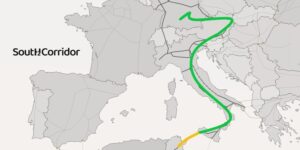- While Saudi Arabia is leading the cartel’s efforts by significantly reducing its production and raising prices, other members may be reconsidering their membership because they do not want to be constrained;
- As large and new producers outside the cartel have increased their oil production, the alliance has lost influence, weakening the cartel;
- The future of OPEC, historically a central player in the energy market, is facing important transformations, such as greater demands for more sustainable sources.
The global oil production landscape faces a crucial crossroads with Angola’s notable decision to leave the OPEC Oil Cartel.
OPEC has historically played a key role in controlling oil prices by keeping them artificially high by coordinating its members’ production policies.
However, growing oil production outside the cartel, led by the United States and other new players, has challenged its influence. Angola’s recent departure suggests a possible crack in OPEC’s internal cohesion, raising crucial questions about its future in the face of transformations in the global energy market.

What is the OPEC oil production cartel?
OPEC, which stands for the Organization of the Petroleum Exporting Countries, is a cartel formed by oil-producing countries seeking to coordinate and unify their petroleum policies. Founded in 1960, its theoretical objective, according to its narrative, is to ensure stability in oil prices by coordinating the production policies of its members. However, in practice, OPEC’s goal is to artificially maintain high oil prices.
OPEC members are countries with significant oil reserves and play a significant role in the global energy market. The cartel influences oil prices by controlling production and supply in the global market.
In theory, when oil demand increases, OPEC can decide to increase production to prevent a spike in prices, but this scenario rarely occurs because OPEC is more than satisfied with profiting from high oil prices. Similarly, when there is an oversupply and prices are low, OPEC may decide to reduce production to balance the market and keep prices at higher levels. This scenario occurs more frequently and has been the status quo for decades, with few exceptions, such as when Saudi Arabia flooded the market with oil in 2014 to try to break the emerging U.S. shale oil industry.
What is OPEC+?
OPEC+ is an alliance between OPEC members and some countries not part of the original alliance. The collaboration between the cartel and these non-member countries aims to more effectively coordinate oil production policies and influence prices in the global market. The idea behind OPEC+ is that, by joining forces, these countries can have a more significant impact on the balance between oil supply and demand.
The alliance with non-member countries emerged in response to challenges faced by the oil market, including price fluctuations and changes in supply and demand dynamics.
Countries in OPEC+ that are not part of OPEC include:
- Russia
- Kazakhstan
- Azerbaijan
- Mexico
- Malaysia
- Sudan
- South Sudan
- Oman
- Bahrain
- Brunei
The group holds regular meetings to discuss and make decisions on oil production levels, with the goal of controlling prices and theoretically avoiding excessive volatility. However, in practice, these meetings involve agreements on production quotas depending on market conditions to artificially maintain high oil prices.
How is OPEC+ artificially cutting oil production to maintain high prices?
Amid rapid changes in the global oil market, OPEC+ is implementing strategies to maintain high oil prices while facing significant challenges, such as record production from the U.S., Brazil, and Guyana, challenging its dominance in the oil market.
To combat market share loss, OPEC+ has adopted even stronger artificial cuts in oil production to boost prices and keep them artificially higher.
While Saudi Arabia leads the cartel’s efforts by significantly reducing its production, other members may be reconsidering their adherence due to not wanting to be constrained. For example, Angola recently opted to leave the cartel, seeking independence in managing its oil production.
How is OPEC weakened by large and new oil producers outside the cartel?
As large and new producers outside the cartel increase their oil production, the alliance has lost influence, weakening OPEC. Some reasons for this include:
- Growth in Production in the U.S. and Canada: Technological advances in extraction, especially in shale, allowed the U.S. and Canada to significantly increase oil production, contributing to a global supply increase and reducing dependence on OPEC members.
- Production in Brazil and Guyana: Discoveries and development of large oil reserves in Brazil and Guyana introduced significant new players into the global market. Increased production in these countries contributes to diversified supply and weakens OPEC’s exclusive control over oil supply and, consequently, prices.
- New Frontiers in Africa and Suriname: Exploration and oil production in new frontiers, such as some African countries (Angola, Nigeria, Ghana, Senegal, Namibia) and potentially Suriname in South America, have increased global supply, posing additional challenges for OPEC as global market competition intensifies.
- Greater Geographic Diversification: The presence of oil producers in various parts of the world outside OPEC’s direct influence contributes to greater geographic diversification of global production. This reduces vulnerability to disruptions in a specific region and provides a broader distribution of supply.
As a result of these combined factors, changes in power dynamics occur as non-OPEC production increases, shifting the balance of influence in the global oil market. Thus, it can be seen that OPEC no longer has a monopoly on control over prices and market conditions, as new participants play a significant role in negotiations and decisions that impact the oil industry.
Even its ability to influence prices through production cuts has been limited by the efforts of other producers around the world to increase or maintain their production, often pursuing economic and strategic goals of their own.
The U.S. setting a historical world record in oil production and Angola leaving the cartel
While the United States is on track to increase its supply by 1.4 million barrels per day, a historic global record, OPEC+ plans a reduction of 400,000 barrels per day by early 2024. This disparity in directions creates a more intense battleground in OPEC’s struggle to maintain high global oil prices.
The U.S. has emerged as a leader, achieving a record crude oil production, driven by technological advances in shale oil extraction. These developments position the U.S. as the world’s largest oil producer, reaching record levels and marking a transformation in market dynamics.
At the same time, Angola’s decision to leave OPEC points to ongoing strategic changes. Exiting the cartel offers Angola renewed flexibility in its production policies, allowing the country to seek economic boosts from oil exports, as well as alternative alliances and bilateral agreements.
Other African countries currently in OPEC include Algeria, Equatorial Guinea, Gabon, Libya, Nigeria, and the Republic of Congo. However, like Angola, nations such as Nigeria, Ghana, and Gabon, aspiring for significant production expansion by 2024, may eventually follow Angola’s example and opt to leave OPEC.
This would be due to frustration with Saudi Arabia’s production restrictions, as these countries need resources to invest in their respective countries, such as education and infrastructure.
On the other hand, China – as one of the largest global oil consumers – also becomes a critical element in this scenario. The slowdown in the Chinese economy can have significant implications for global oil demand, impacting prices and market outlook.
Additionally, growing pressures toward climate policies and the rise of electric vehicles (EVs) are reshaping the energy landscape. Global initiatives for more sustainable transitions are altering oil demand projections, adding an additional layer of complexity to market dynamics.
Therefore, the increase in U.S. production, Angola’s exit, dissatisfaction among some African countries with Saudi Arabia’s restrictions on the cartel, the slowdown in the Chinese economy, and the growing demand for electric vehicles not only challenge OPEC’s strategies but also highlight the ongoing changes in the oil market.
What is the future of OPEC and its immeasurable power in the world’s most important energy market?
The future of OPEC, historically a central player in the global energy market, is undergoing significant transformations. Known for its influence in regulating oil production and maintaining high prices, the cartel faces growing pressures that may impact its power and influence.
The level of OPEC’s power and influence will depend on its ability to address several factors beyond its control. Angola’s decision to leave the cartel signals a potential crack, indicating that other countries may follow suit, weakening the organization’s internal cohesion.
The 2014 price war, triggered by Saudi Arabia flooding the oil market to try to kill the emerging U.S. shale industry, which ultimately failed at a cost of billions to the Saudi Kingdom, demonstrated the organization’s vulnerability to changes in market dynamics.
One option is for Saudi Arabia to flood the oil market again to crash barrel prices and once again attempt to break American producers with extraction costs much higher than Riyadh’s.
Another option is for OPEC to maintain its importance in the coming decades; however, it is inevitable that it will lose some of its influence as more countries seek autonomy in their energy production, part of the “energy sovereignty” that many countries pursue.
The 28th Conference of the Parties (COP 28) in 2023 highlighted the urgency of exploring alternatives and adapting to an evolving scenario. Therefore, Saudi Arabia may seek to emulate the efforts of the United Arab Emirates in creating new sources of revenue beyond oil, as part of its plan to transform the country into a “new Dubai.”
Regardless of the cartel’s decisions, global climate policies and the pursuit of more sustainable energy sources are shaping a new market. With reduced dependence on fossil fuels, the demand for oil may decrease, directly impacting OPEC’s interests.
Thus, uncertainty looms over the long-term impact of these strategies. OPEC+ will continue to be a dominant force in the oil market, but it will eventually lose ground to growing producers outside the cartel and increased use of renewable energy.





Be First to Comment